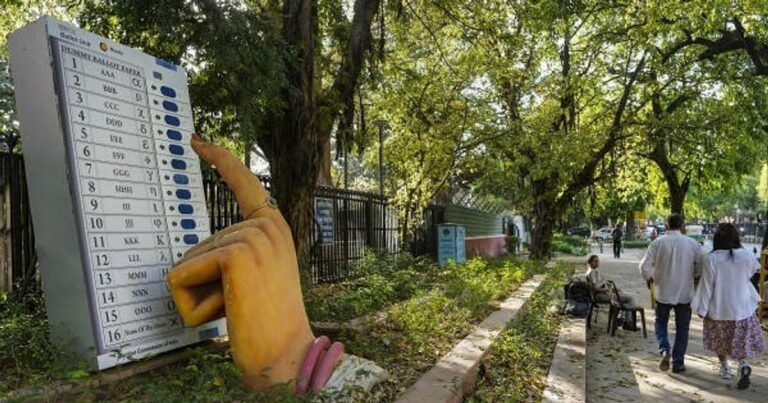Economists at SBI, the country’s largest financial institution, said that concerns about low voter turnout in the first two phases of the 2024 general election are a ‘myth’, saying that analyzing voter turnout requires looking at the absolute number of votes cast. “Comparing is a better way,” he said.
Sowmya Kanti Ghosh, group principal economic advisor at SBI, said the absolute number of votes cast increased by 0.4 per cent in the first two phases.
“The endless debates circulating over the likely low turnout in the first two stages of the 2024 general election are a myth. A more accurate measure of votes cast is the absolute number of voters,” he said in the report. mentioned in.
The Election Commission has been working to increase turnout in the remaining stages of voting.
Ghosh, who is also a part-time member of the 16th Finance Committee, said the turnout was about 3.1% below the trend observed in the last general election in 2019, but the numbers would be “inflated” for the remaining elections. He quickly added that it was a possibility. The five-stage poll shows a “J-shaped” growth.
“In 2019, voting patterns showed a seven-step downward trend, starting at 69.4 percent and ending at 61.7 percent. We believe a reversal will occur in 2024, with significant improvement in turnout.” First absolute number of votes cast in two stages,” the report said.
The first two phases of the poll so far have seen beneficial changes, including a gradual increase in women’s participation and an increase in women’s participation in reserved seats.
According to the SBI report, Karnataka will see the highest increase in the number of voters in 2024, followed by Assam and Maharashtra.
A detailed analysis of the constituencies found that 85 constituencies saw an increase in the absolute number of votes cast by more than 100,000 votes, while 25 constituencies remained the same. Therefore, 60% of constituencies saw an increase or no significant change, the report said.
The Lok Sabha elections will be held in seven phases, with voting for the third phase scheduled to be held on Tuesday.
“We also believe that the scorching summer and widespread heatwave may have been a spoils for a certain proportion of voters.”
Meanwhile, the report also said that the 17th Congress was the most efficient in history, true to its model, and that 2023 was the most efficient year for Congress in terms of bills passed, on par with 1955. .
The magazine said 1976 (the year of the state of emergency, when political leadership of the main opposition parties ceased) and 2020 (the disruption caused by the pandemic) were excluded for ranking purposes.
issued May 6, 2024, 10:33am IST

